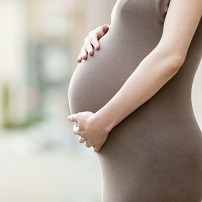Women’s Health Alert
August 11, 2017High Fat Diet During Pregnancy May Increase Cancer Risks
 A recent health study published important medical results: data showing female mice that eat a high fat diet during pregnancy are at a “substantially” higher risk of breast cancer. The findings have piqued the interest of the medical community, with many researchers calling on the importance of further investigations into breast cancer and the results of high fat diets.
A recent health study published important medical results: data showing female mice that eat a high fat diet during pregnancy are at a “substantially” higher risk of breast cancer. The findings have piqued the interest of the medical community, with many researchers calling on the importance of further investigations into breast cancer and the results of high fat diets.
Researchers at the Georgetown Lombardi Comprehensive Cancer Center conducted the study and its results were published in Breast Cancer Research, a medical journal. In the past, high fat diets have been linked to an increase of inflammation. Inflammation can be dangerous in many ways: it can cause infections, abnormal immune reactions and medical conditions. Eventually, if the inflammation does not resolve, it can even end up damaging DNA and causing cancer.
To imitate the high fat diet of humans, the mice were fed ones consisting of 40% fat. The researchers estimate that the average human diet is made up of about 33% fat. They found that when a female mouse ate a high fat diet during pregnancy, its female offspring would be at a much higher risk for cancer. If the pregnant mouse started to eat a high fat diet during in its second trimester, an increase in breast cancer risk as far down the genealogical line as the great-granddaughters was found.
Overall, the study determined that if mice ate diets high in fat during the first or second trimesters of pregnancy, that female offspring would be at a higher risk of breast cancer for the next two generations. Because doctors find that pregnant women are more likely to eat diets high in fat than non-pregnant women are, further scientific inquiry could be particularly meaningful.
The American Cancer Society (ACS) estimates that over 250,000 women will be newly diagnosed with breast cancer this year and that more than 63,000 women will be diagnosed with carcinoma in situ (non-invasive), the earliest form of the disease. Because it is a disease that affects so many women, continued research on its risk factors, treatment options and prevention is necessary.
The Centers for Disease Control and Prevention (CDC) notes that known risk factors of breast cancer include genetic mutations to certain genes, aging, physical inactivity, obesity, taking certain oral contraceptive pills, personal history of breast cancer or certain non-cancerous breast diseases, family history of breast cancer, previous treatment using radiation therapy and having dense breast tissue. Please read the CDC’s full list of known risk factors.
Whether or not eating a diet high in fat contributes to an increased risk of breast cancer remains a controversial topic. However, more than one medical study has found evidence which points to high fat diets being dangerous. A comprehensive European study, which involved almost 340,000 women over an 11-year-period, found that women who ate a higher amount of saturated fats were at risk for breast cancer 30% more than those who ate less. However, the study did not determine that consuming saturated fats was the direct cause of the cancer growth; instead, it indicated foods higher in fat might contain dangerous compounds that contribute to overall cancer risk.
Diets that are high in fat can be dangerous in many ways. For pregnant women and those who are at a higher risk for cancer because of preexisting family or personal history, data shows that it may be best to limit fat consumption. Before making any dietary or lifestyle changes, however, it is important to consult directly with a medical professional. Not only does medical data show that a person’s diet may contribute to their risk of cancer, but also that there may be a link between a pregnant mother’s diet and the chance of her offspring developing the deadly disease. Luckily, doctors and researchers across the globe recognize the importance of further investigation, and in the future we can expect to learn more about how our diets affect our health.
Reading Products Liability Lawyers at Galfand Berger, LLP Pursue Compensation
If you have any questions and would like to speak directly with one of our product liability lawyers in Reading, call our office. At Galfand Berger, we are happy to answer your questions and review your case for free. With offices located in Philadelphia, Bethlehem, Lancaster, and Reading we serve clients throughout Pennsylvania and New Jersey. To schedule a consultation, call us at 800-222-8792 or complete our online contact form.
 Google Screened
Google Screened
